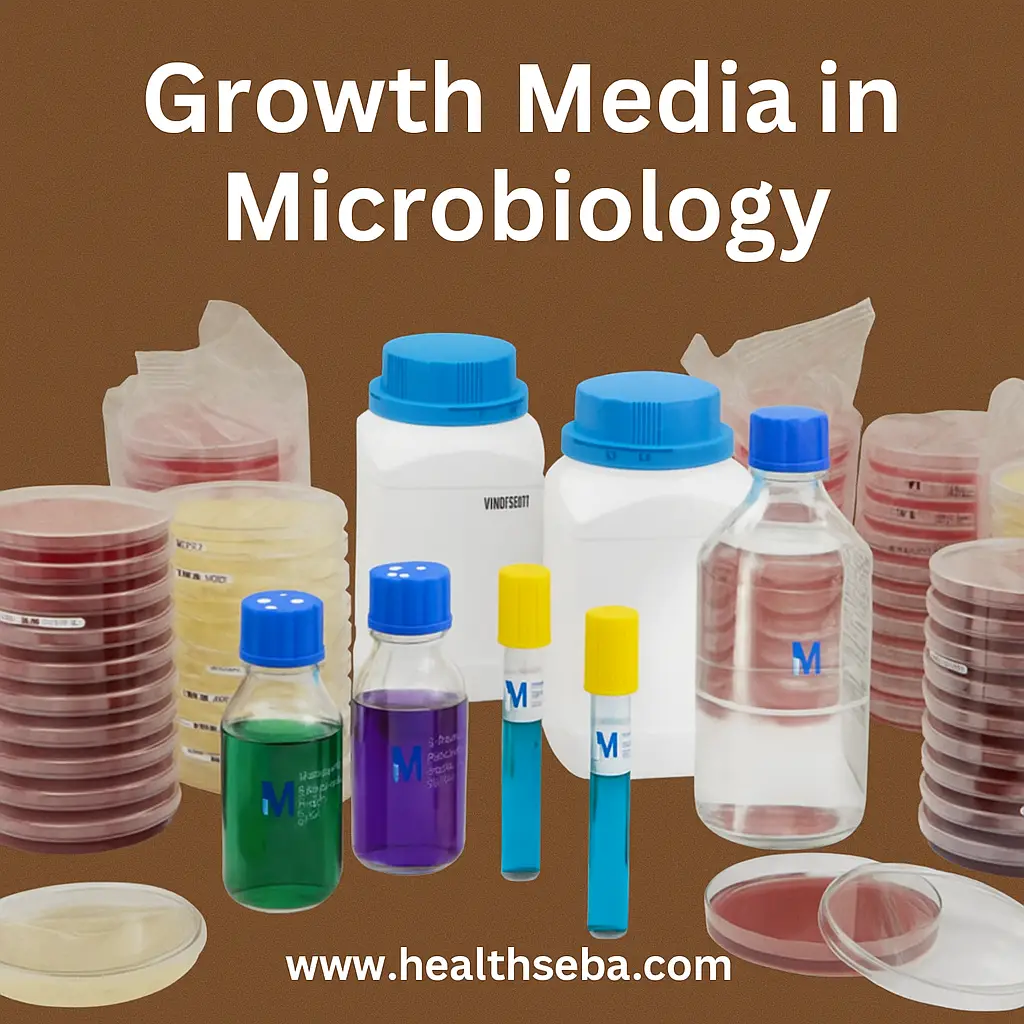Introduction
Sugar media are specialized differential culture media used in microbiology to detect the ability of bacteria to ferment specific carbohydrates such as glucose, lactose, sucrose, or mannitol. During fermentation, bacteria produce acid and sometimes gas. These changes become easily visible with the help of pH indicators and Durham’s tubes, making the test simple and effective.
Media Type
Category: Differential media
Purpose: Used to differentiate bacteria based on their carbohydrate fermentation patterns.
Examples of sugars used: Glucose, Lactose, Sucrose, Mannitol, Maltose.
Composition & pH of Sugar Media
Each sugar medium contains (per liter of distilled water):
| Component | Function |
|---|---|
| Peptone (10 g) | Source of nitrogen, amino acids |
| Sodium chloride (5 g) | Maintains osmotic balance |
| Carbohydrate (1%) | Test sugar (e.g., glucose, lactose, etc.) |
| Indicator (Phenol Red/ Andrade’s Indicator) | Detects acid production |
| Durham’s Tube | Detects gas production (if any) |
| Distilled water | Solvent |
Sterilization
Peptone base: Autoclave at 121°C for 15 minutes.
Sugar solutions: Sterilize separately by steaming at 100°C for 30 minutes on three successive days (to avoid caramelization).
Mix sterile sugar solution with sterile peptone base before dispensing.
Preparation of Sugar Media
Prepare peptone water base (peptone + NaCl).
Sterilize the base by autoclaving.
Prepare 10% sugar solutions separately and sterilize by steaming.
Add 1% sugar solution aseptically to peptone water base.
Dispense into test tubes with Durham’s tubes (placed inverted before sterilization).
Store at 2–8°C until use.
Uses of Sugar Media
Detects fermentation of specific carbohydrates by bacteria.
Differentiates Enterobacteriaceae members:
E. coli → lactose fermenter (acid + gas).
Salmonella → glucose fermenter (acid + gas), lactose negative.
Used in identification of pathogenic bacteria like Vibrio cholerae (ferments sucrose) and Shigella spp. (no gas production).
Provides biochemical profiles useful for bacterial taxonomy.
Interpretation of Results
Acid Production: Medium turns yellow (phenol red indicator).
Gas Production: Bubble seen in Durham’s tube.
No Fermentation: Medium remains red.
Alkaline Reaction: Deep red due to peptone utilization.
Conclusion
Sugar media are important differential biochemical tests in microbiology. They help in the identification of enteric bacteria and other pathogens by analyzing their carbohydrate fermentation patterns.
Related Posts

Growth Media in Microbiology – Types, Examples & Uses
Growth Media in Microbiology – Types, Uses, and Examples Introduction…
Carb Counting In Diabetics
Introduction Food selection plays a major role in diabetes management,…
Diabetes Complications
Introduction Uncontrolled diabetes harms multiple organs and raises long-term health…